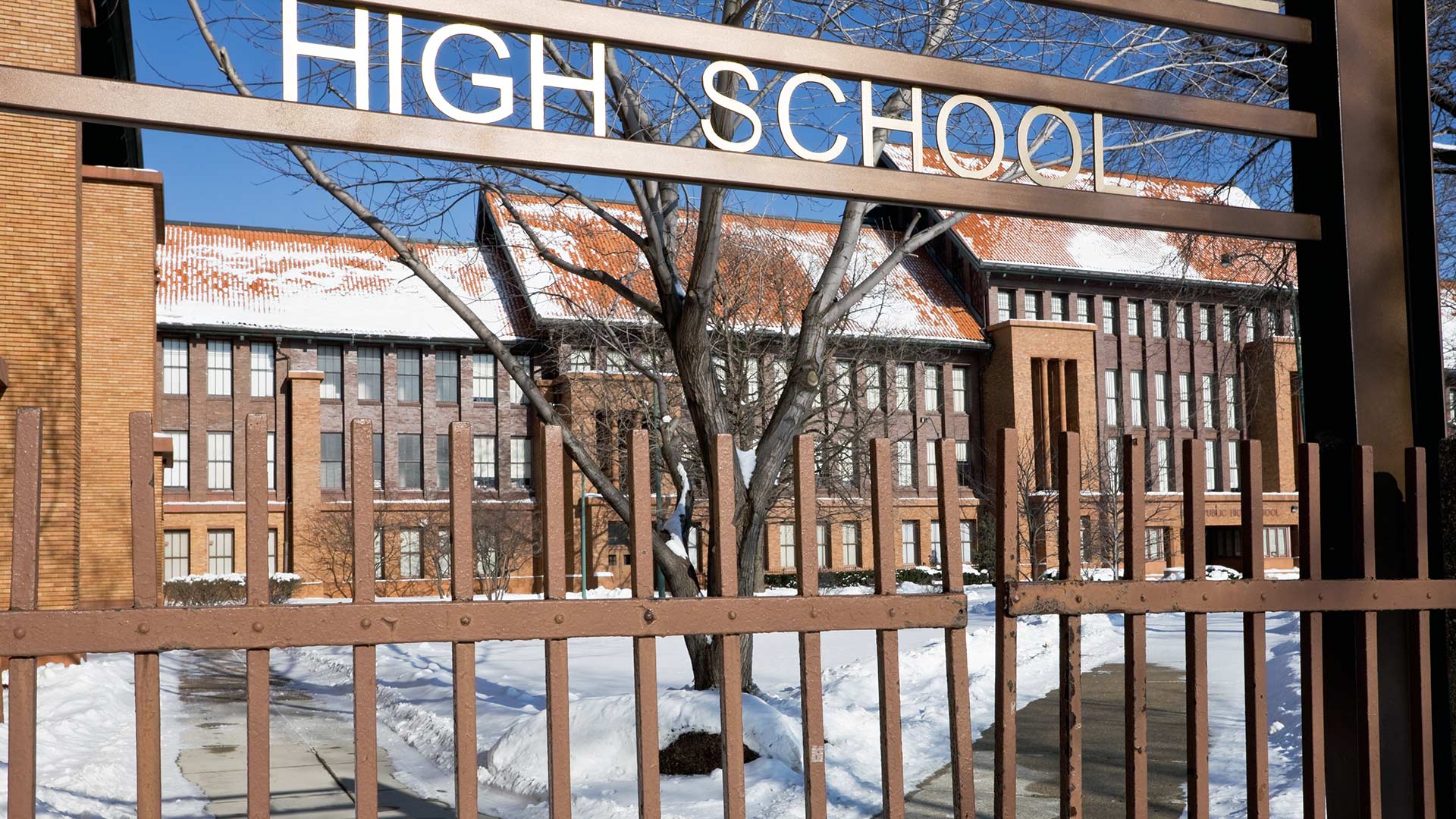
In a controversial decision, the Chicago Board of Education has voted to remove school resource officers (SROs) from dozens of high schools across the city by the beginning of the next school year.
The move comes amid a heated debate over the role of law enforcement in educational settings and aims to address concerns about the apparent disproportionate policing and discipline of Black students and students with disabilities.
The school board’s vote also follows its January decision — approved by Mayor Brandon Johnson — to end its contract with the Chicago Police Department.
The decision, outlined in the “Resolution to Create a Comprehensive Whole School Safety Policy,” marks a significant shift in the approach to school safety in Chicago.
Under this resolution, the 39 high schools currently employing school resource officers (SROs) will no longer be allowed to do so starting next school year.
“The policy must make explicit that the use of SROs within district schools will end by the start of the 2024–25 school year,” the board stated, adding that it “will continue its strong partnership with the mayor’s office and the Chicago Police Department, which have always, and will continue to, provide critical support for all our schools.”
Advocates for the removal of SROs argue that their presence contributes to the over-policing of marginalized students and perpetuates a culture of fear and mistrust within schools.
They have also called for a more holistic approach to school safety that focuses on addressing the root causes of violence, as well as implementing “restorative justice” and “healing-centered practices.”
“We know that the issue of school safety is the concern of all community members,” said a coalition of community organizations, including Voices of Youth in Chicago Education, Mikva Challenge, Community Organizing and Family Issues, The Ark of St. Sabina, and BUILD Inc. “How to make schools safer should be decided through an inclusive decision-making process aligned with the needs of the community, teachers, staff, and parents and centered on needs identified by students.”
However, opponents of the resolution argue that removing SROs jeopardizes the safety of students and staff, especially in the wake of recent shootings near Chicago schools.
They contend that SROs play a crucial role in maintaining a secure learning environment and preventing violence.
“Removing Chicago Police officers from public schools is a mistake with potentially tragic consequences,” warned Paul Vallas, former CEO of Chicago Public Schools. “It is driven by misinformation and ideology and naively ignores the escalating violence engulfing our youth.”
The debate over the presence of SROs in schools has been ongoing, intensified by the racial justice protests and riots of 2020.
While more than half of the city’s district-run high schools have already removed officers, the decision to eliminate them entirely has been met with mixed reactions.
“I believe the Chicago Board of Education should listen to each school’s Local School Council and the school voice when it comes to making decisions involving their kids’ safety and the safety of each school,” stated Mark Grishaber, principal at Chicago’s William Howard Taft High School.
“My students, parents and teachers overwhelmingly want to keep our SROs,” he added.
Meanwhile, Chicago Police Superintendent Larry Snelling said the CPD would continue its work to protect students, regardless if SROs are removed.
The resolution to remove SROs from Chicago schools aligns with similar efforts in other school districts across the country.
Chicago Public Schools seeking to remove school police have also received grants of $3.9 million to fund alternative safety programs.
Last year, school leaders in Denver voted to reinstate SROs amid deteriorating safety conditions, while districts in Phoenix, Alexandria, Montgomery County, Washington D.C., and Pomona have either rehired SROs or halted plans to phase them out.
As Chicago prepares to implement this sweeping change in school safety policy, the focus remains on creating an inclusive and supportive environment that prioritizes the well-being of all students.
“We are committed to developing a new policy that lays out a holistic approach to student safety and addresses root causes and contributing factors for disparities in student discipline,” stated the Chicago Board of Education. “Our priority is to help students heal from trauma, address situations through restorative justice, and re-engage kids who are growing uninterested in school.





